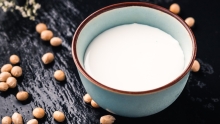Vitamin B12: How to Avoid a Deficiency
The Importance of Calcium in a Vegan Diet
How to Substitute Eggs in Recipes
Eggs are a valuable source of protein, vitamins B2 and B12, phosphorus, and zinc. They often play a crucial role in the structure and texture of dishes. However, for those who are allergic to eggs or follow a vegan diet, it is essential to know effective alternatives. Here are some tips for replacing eggs based on their role in the recipe.
*Note that these alternatives are not nutritionally equivalent to eggs.
Vegetarian, Vegan, and Carnivore Diets Under the Microscope
Whether you seek to improve your health, reduce your environmental impact, or simply explore new eating habits, choosing a diet can be a complex decision. Vegetarian, vegan, and carnivore diets all have their proponents and detractors, each touting the merits and highlighting the drawbacks of their preferred method. This diversity of opinions can be confusing, but it also underscores the importance of finding an approach that suits you personally.
5 Tips to Increase Your Daily Consumption of Fruits and Vegetables
Controversies Surrounding Soy and Testosterone Levels
The Power of Soy: A Comprehensive Guide to Cooking with Soy
Soy has garnered a significant following worldwide, thanks to its origins in Asia and its robust nutritional profile. This versatile legume offers complete proteins, making it a popular meat substitute for vegetarians. Soy flour, protein, and oil find their way into numerous commercial food products. But, the culinary uses of soy don't just end there. With a little creativity, you can whip up delightful dishes using soy products right at home. Let's dive into some of the ways you can incorporate soy into your cooking.
Benefits of Pulses and How to Incorporate Them Into Your Diet
What are Pulses?
Beans, lentils, chickpeas, and peas all fall under the umbrella term of pulses (1). These are all seeds of plants found in the legume family.
On the other hand, legumes refer to a plant that grows in a pod. Some examples of legumes include soybeans and peanuts.
When comparing pulses to legumes, most pulses are low in fat and high in fiber and protein, whereas legumes tend to be higher in fat (1). Therefore, pulses are a great source of plant-based protein.



















